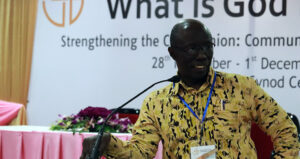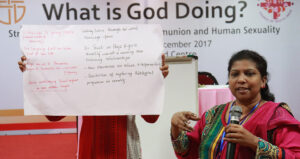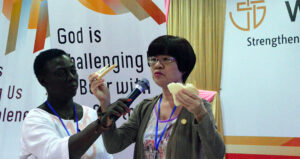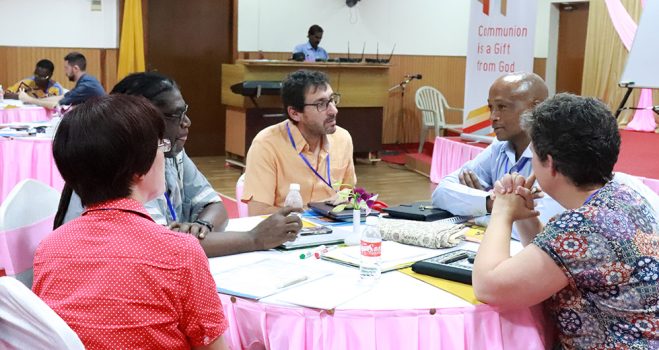The 2017 General Council of the World Communion of Reformed Churches (WCRC) recognized a variety of challenges to building a better communion, including linguistic and cultural tensions, as well as differences in theological and hermeneutical perspectives.
The Council committed the WCRC to “set the atmosphere for dialogue and discernment on communion and diversity – in a spirit of consensus building where there are no winners or losers, where no one is excluded, where all are protected and where mutual challenge, mutual accountability and grace become key values.”

A first step in this process was taken with a consultation held in late 2017 in Chennai, India, on the theme “Strengthening the Communion: Communion and Human Sexuality.”
The consultation was hosted by the Church of South India and gathered member church representatives that reflected the diversity of perspectives on this issue. Attendees were invited to understand and address differences, seeking justice as an understanding of the communion that binds everyone together in mission and service.
According to Samuel Ayete-Nyampong, from the Presbyterian Church of Ghana and a WCRC vice-president, it was timely consultation.
“For many of us from Africa who haven’t sat in a consultation to discuss human sexuality before, that was a breakthrough meeting to strengthen communion and to open up to different views on human sexuality,” said Ayete-Nyampong. “The consultation provided a friendly, non-intimidating space for discussion of the sensitive issues surrounding human sexuality.”

Robina Winbush, of the Presbyterian Church (USA), found it to be a timely consultation: “It was a very important consultation at this moment in the history of WCRC and the member churches.”
After days of presentations, discussions and deliberations the consultation participants made six commitments seeking God’s voice and wisdom related to human sexuality:
- Commit to the Bible
- Commit to critical Reformed theological engagement
- Journeying together seeking God’s voice
- Commit to the radical hospitality that Jesus called us to
- Commit to continued conversation
- respect
- love
- trust
- listening to a variety of voices including those most affected
- Commit to praying for and with one another
Regarding these commitments, Winbush said, “It was a very important first step with some clear next steps defined. The six commitments are a good starting point for further work. It is important that the WCRC honours these commitments.”

“Generally, I was delighted that we have agreed on the six commitments,” said Ayete-Nyampong. “From my African perspectives, the six commitments set the foundation for further dialogues, recognizing that we are all in communion and have roles to play to deepen our communion without rejecting individuals who express different opinions or have different expressions of sexuality.
“The Chennai Consultation should be recognized as a ‘breakthrough’ process that will positively impact our Communion as a Reformed family. The Chennai consultation has made a positive historic mark in our ecumenical history,” Ayete-Nyampong concluded.
The work of the consultation will next be fed into the strategic planning process currently underway. It is anticipated that a new strategic plan will be adopted by the WCRC Executive Committee at its meeting in May and will provide the directions for the organization until the next General Council.


